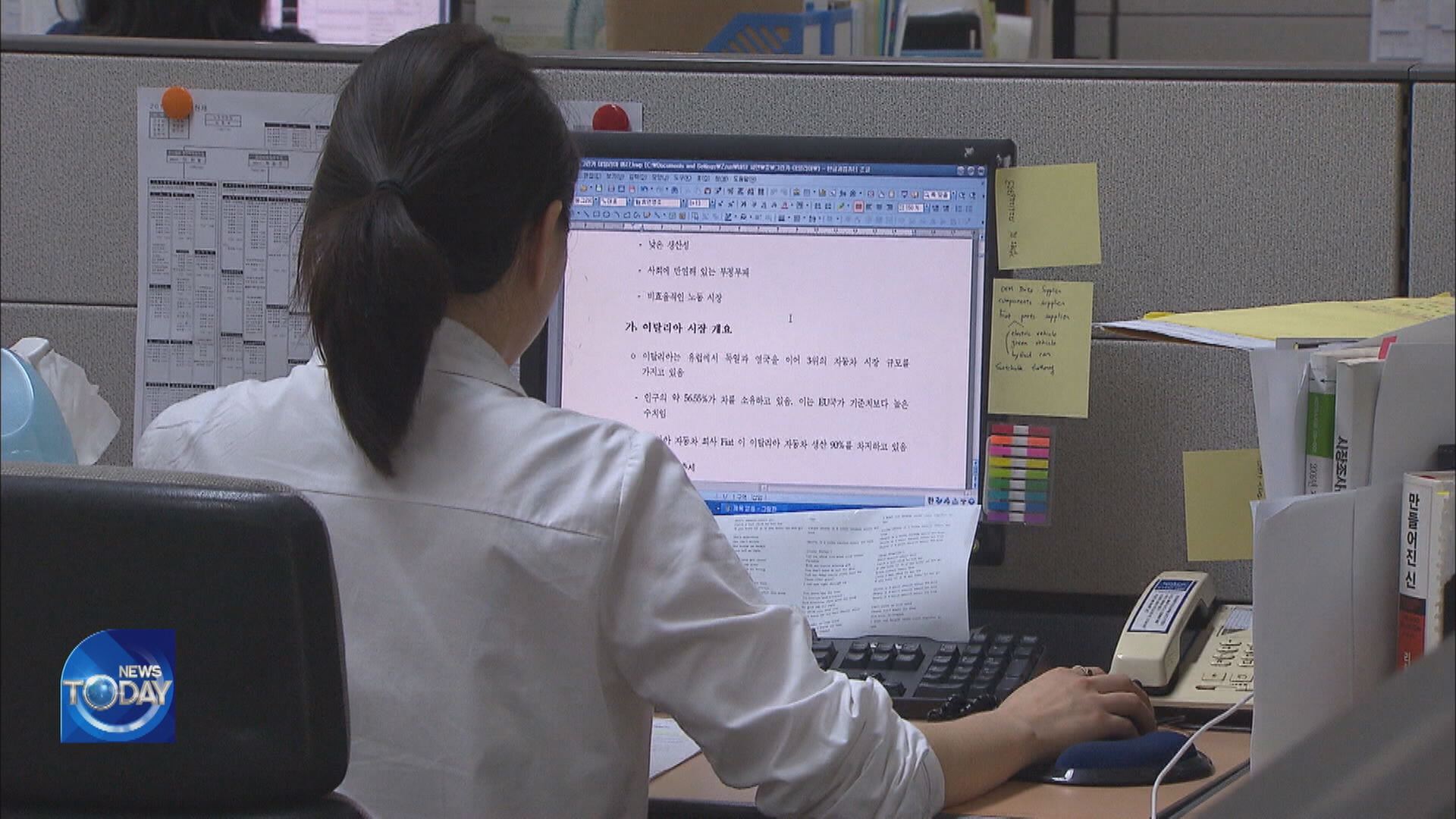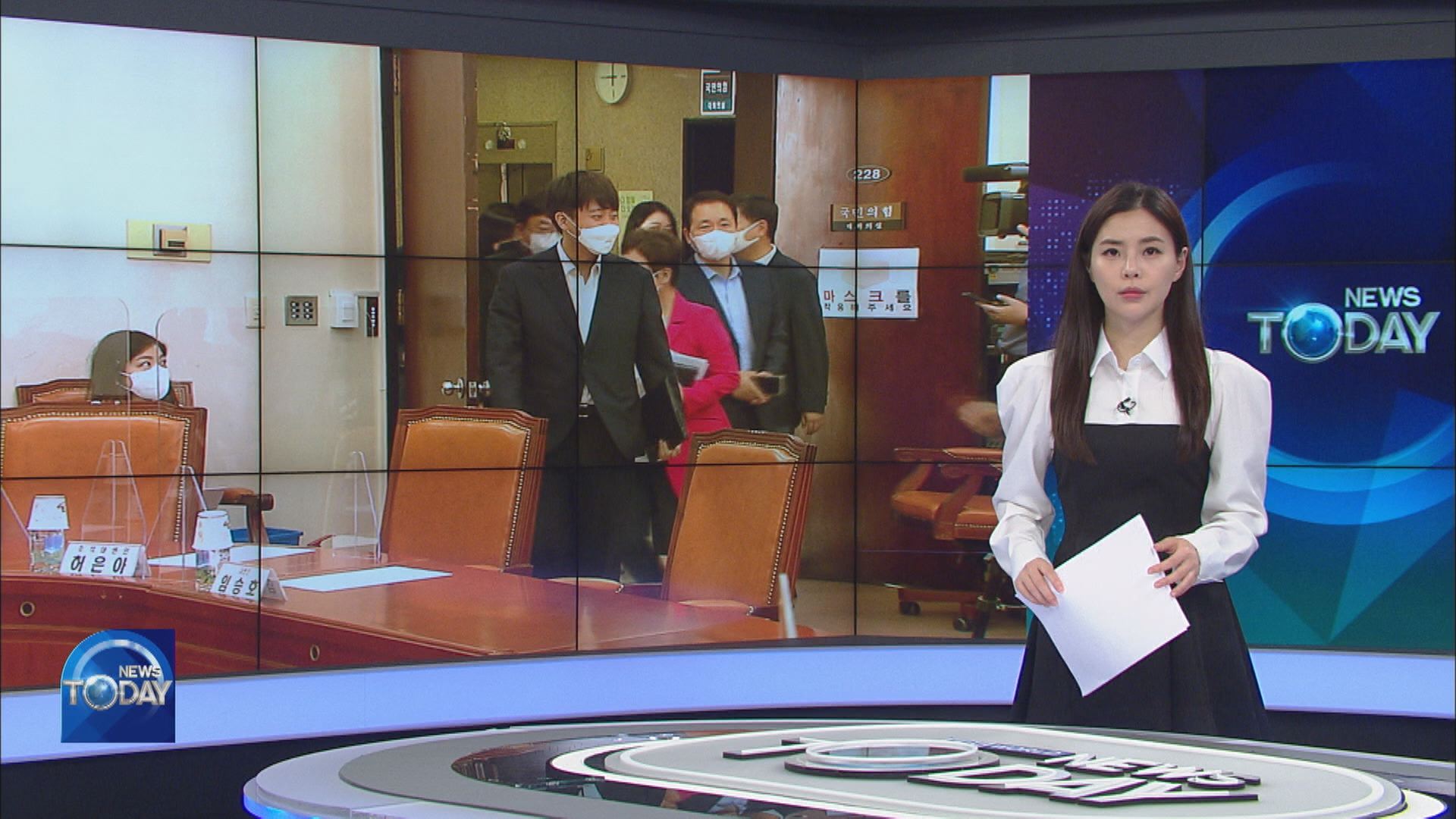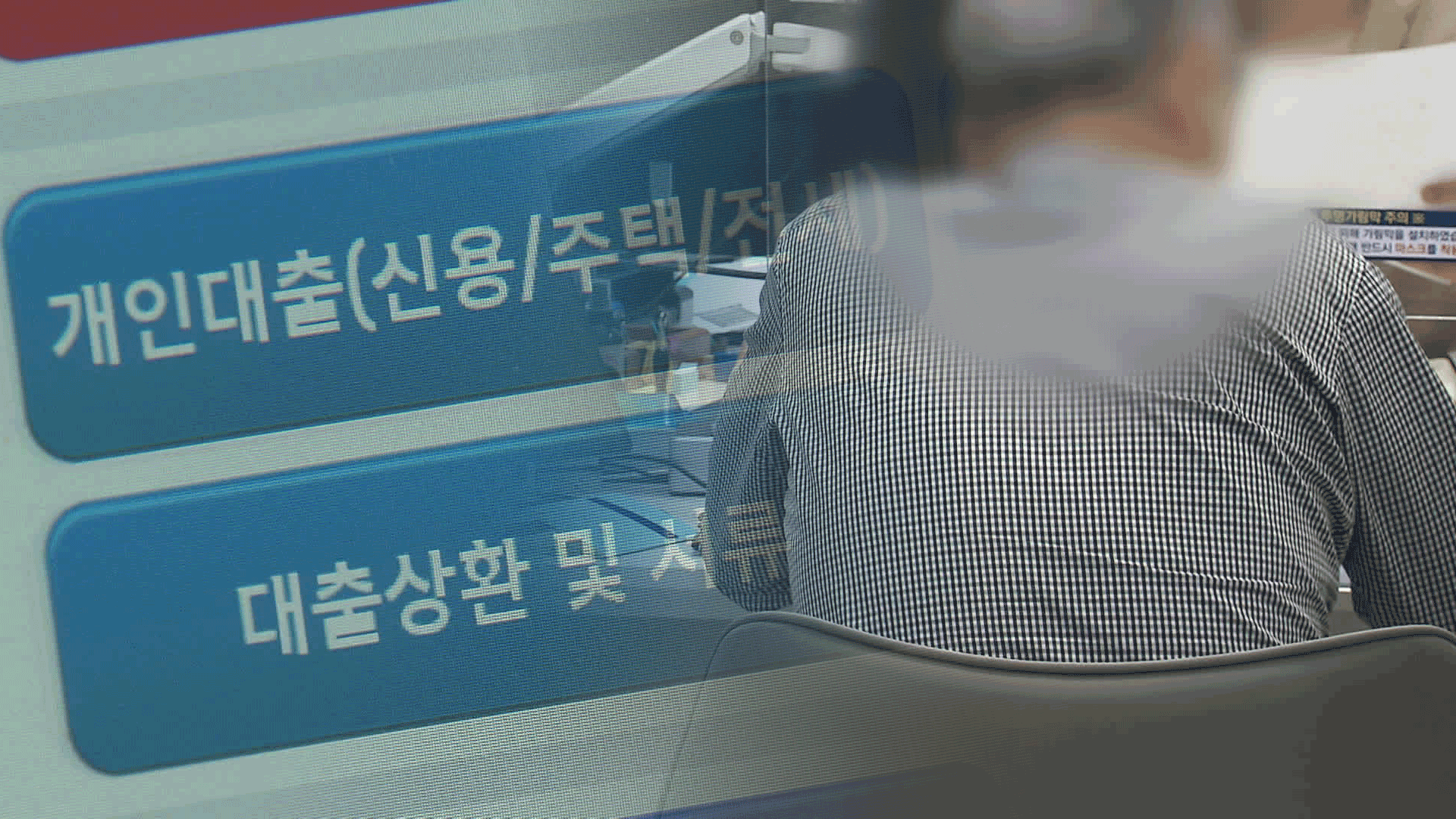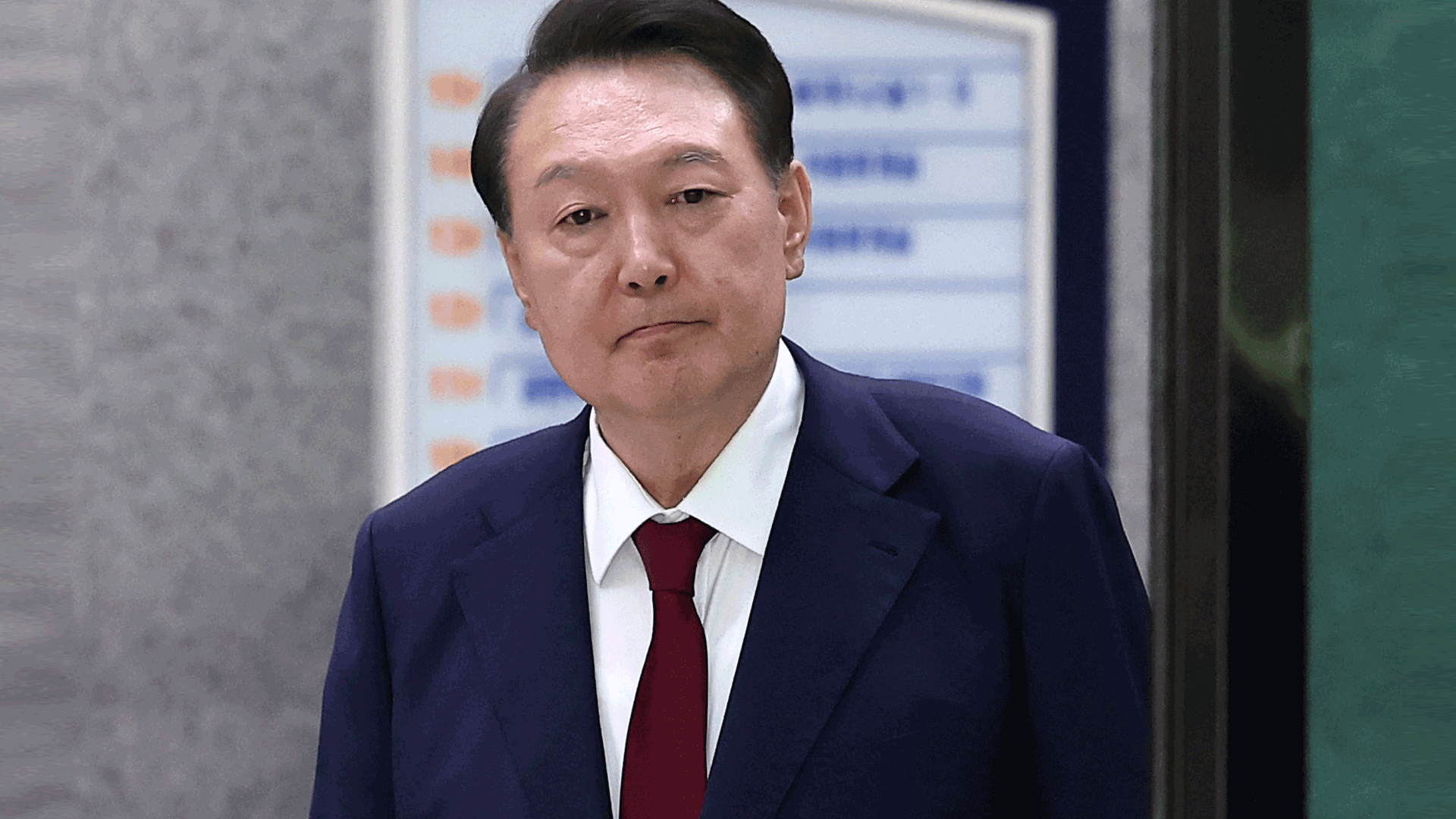SOCIAL INDICATORS ON WORKING WOMEN
입력 2021.09.06 (15:26)
수정 2021.09.06 (16:46)
읽어주기 기능은 크롬기반의
브라우저에서만 사용하실 수 있습니다.
[Anchor Lead]
The number of women living alone increased 2.6 times since 20 years ago to record 3.33 million households. Several social indicators show that women’s lives have improved gradually over the years, but the wage and employment gaps still remain wide between men and women.
[Pkg]
Park Yeon-jeong, a mother with a six-year-old son. Two months ago, she cut working hours by two hours and started leaving work by four P.M. Both love having more time together as she can pick him up at the childcare center.
[Soundbite] Park Yeon-jeong(Woman Working Shorter Hours) : "I used to always tell my son to hurry up, but now I have more time so I can wait for him. I can stay relaxed in the office since I’m happier at home."
Since the pandemic compelled families to care for their children at home, an increasing number of parents opted to shorten their working hours. The number of women using their childcare leave is steadily on the rise. There are many ways to achieve balance between work and family in our society, but the gap still exists in real life. Women’s average wage is only 70% of men’s and nearly a 20% difference is observed in the employment rates of men and women. There's a growing percentage of female managers in public agencies and private companies, but it's still far below the OECD average.
[Soundbite] Jang Mi-gyo(Office Worker) : "Since there’s a gender wage gap, there's a tendency to believe that it is the norm for men to work outside of home as they get paid more while women stay home and take care of family."
As crimes against women such as domestic violence, sexual assaults, and dating violence become more rampant, fewer women than men tend to feel safe.
[Soundbite] Kim Jong-mi(Chief, Women’s Policy Bureau, Ministry of Gender Equality and Family) : "The ministry will build legal grounds to protect and support stalking victims and strengthen customized support programs for victims of violence against women."
More women than men thought that Korean society was fair in education and welfare. Many women believe they are treated more unfairly than men.
The number of women living alone increased 2.6 times since 20 years ago to record 3.33 million households. Several social indicators show that women’s lives have improved gradually over the years, but the wage and employment gaps still remain wide between men and women.
[Pkg]
Park Yeon-jeong, a mother with a six-year-old son. Two months ago, she cut working hours by two hours and started leaving work by four P.M. Both love having more time together as she can pick him up at the childcare center.
[Soundbite] Park Yeon-jeong(Woman Working Shorter Hours) : "I used to always tell my son to hurry up, but now I have more time so I can wait for him. I can stay relaxed in the office since I’m happier at home."
Since the pandemic compelled families to care for their children at home, an increasing number of parents opted to shorten their working hours. The number of women using their childcare leave is steadily on the rise. There are many ways to achieve balance between work and family in our society, but the gap still exists in real life. Women’s average wage is only 70% of men’s and nearly a 20% difference is observed in the employment rates of men and women. There's a growing percentage of female managers in public agencies and private companies, but it's still far below the OECD average.
[Soundbite] Jang Mi-gyo(Office Worker) : "Since there’s a gender wage gap, there's a tendency to believe that it is the norm for men to work outside of home as they get paid more while women stay home and take care of family."
As crimes against women such as domestic violence, sexual assaults, and dating violence become more rampant, fewer women than men tend to feel safe.
[Soundbite] Kim Jong-mi(Chief, Women’s Policy Bureau, Ministry of Gender Equality and Family) : "The ministry will build legal grounds to protect and support stalking victims and strengthen customized support programs for victims of violence against women."
More women than men thought that Korean society was fair in education and welfare. Many women believe they are treated more unfairly than men.
■ 제보하기
▷ 카카오톡 : 'KBS제보' 검색, 채널 추가
▷ 전화 : 02-781-1234, 4444
▷ 이메일 : kbs1234@kbs.co.kr
▷ 유튜브, 네이버, 카카오에서도 KBS뉴스를 구독해주세요!
- SOCIAL INDICATORS ON WORKING WOMEN
-
- 입력 2021-09-06 15:26:20
- 수정2021-09-06 16:46:28

[Anchor Lead]
The number of women living alone increased 2.6 times since 20 years ago to record 3.33 million households. Several social indicators show that women’s lives have improved gradually over the years, but the wage and employment gaps still remain wide between men and women.
[Pkg]
Park Yeon-jeong, a mother with a six-year-old son. Two months ago, she cut working hours by two hours and started leaving work by four P.M. Both love having more time together as she can pick him up at the childcare center.
[Soundbite] Park Yeon-jeong(Woman Working Shorter Hours) : "I used to always tell my son to hurry up, but now I have more time so I can wait for him. I can stay relaxed in the office since I’m happier at home."
Since the pandemic compelled families to care for their children at home, an increasing number of parents opted to shorten their working hours. The number of women using their childcare leave is steadily on the rise. There are many ways to achieve balance between work and family in our society, but the gap still exists in real life. Women’s average wage is only 70% of men’s and nearly a 20% difference is observed in the employment rates of men and women. There's a growing percentage of female managers in public agencies and private companies, but it's still far below the OECD average.
[Soundbite] Jang Mi-gyo(Office Worker) : "Since there’s a gender wage gap, there's a tendency to believe that it is the norm for men to work outside of home as they get paid more while women stay home and take care of family."
As crimes against women such as domestic violence, sexual assaults, and dating violence become more rampant, fewer women than men tend to feel safe.
[Soundbite] Kim Jong-mi(Chief, Women’s Policy Bureau, Ministry of Gender Equality and Family) : "The ministry will build legal grounds to protect and support stalking victims and strengthen customized support programs for victims of violence against women."
More women than men thought that Korean society was fair in education and welfare. Many women believe they are treated more unfairly than men.
The number of women living alone increased 2.6 times since 20 years ago to record 3.33 million households. Several social indicators show that women’s lives have improved gradually over the years, but the wage and employment gaps still remain wide between men and women.
[Pkg]
Park Yeon-jeong, a mother with a six-year-old son. Two months ago, she cut working hours by two hours and started leaving work by four P.M. Both love having more time together as she can pick him up at the childcare center.
[Soundbite] Park Yeon-jeong(Woman Working Shorter Hours) : "I used to always tell my son to hurry up, but now I have more time so I can wait for him. I can stay relaxed in the office since I’m happier at home."
Since the pandemic compelled families to care for their children at home, an increasing number of parents opted to shorten their working hours. The number of women using their childcare leave is steadily on the rise. There are many ways to achieve balance between work and family in our society, but the gap still exists in real life. Women’s average wage is only 70% of men’s and nearly a 20% difference is observed in the employment rates of men and women. There's a growing percentage of female managers in public agencies and private companies, but it's still far below the OECD average.
[Soundbite] Jang Mi-gyo(Office Worker) : "Since there’s a gender wage gap, there's a tendency to believe that it is the norm for men to work outside of home as they get paid more while women stay home and take care of family."
As crimes against women such as domestic violence, sexual assaults, and dating violence become more rampant, fewer women than men tend to feel safe.
[Soundbite] Kim Jong-mi(Chief, Women’s Policy Bureau, Ministry of Gender Equality and Family) : "The ministry will build legal grounds to protect and support stalking victims and strengthen customized support programs for victims of violence against women."
More women than men thought that Korean society was fair in education and welfare. Many women believe they are treated more unfairly than men.
이 기사가 좋으셨다면
-
좋아요
0
-
응원해요
0
-
후속 원해요
0















![[단독] 윤석열 정부, ‘대통령실 공사비 미지급’ 피소](/data/news/2025/06/30/20250630_8MRvHk.png)

이 기사에 대한 의견을 남겨주세요.